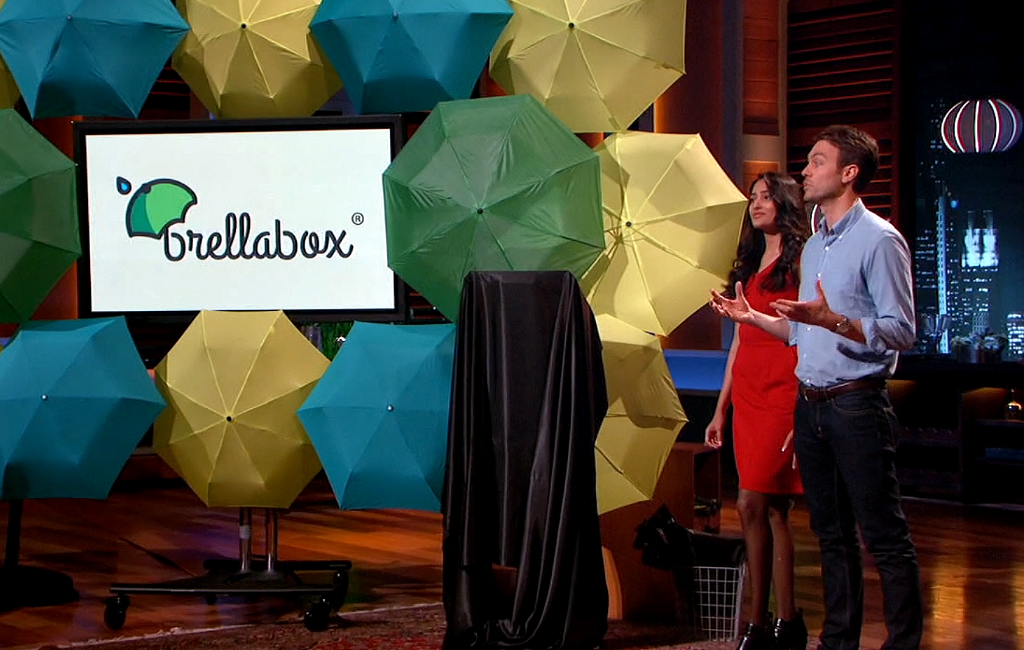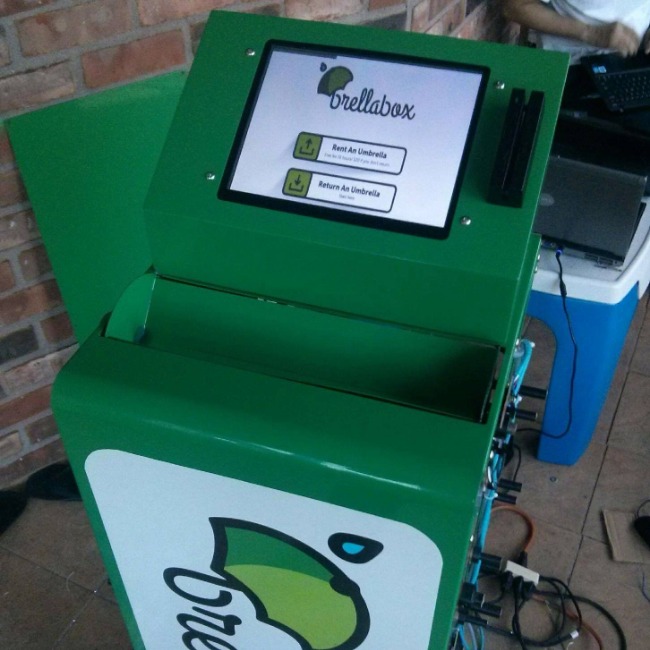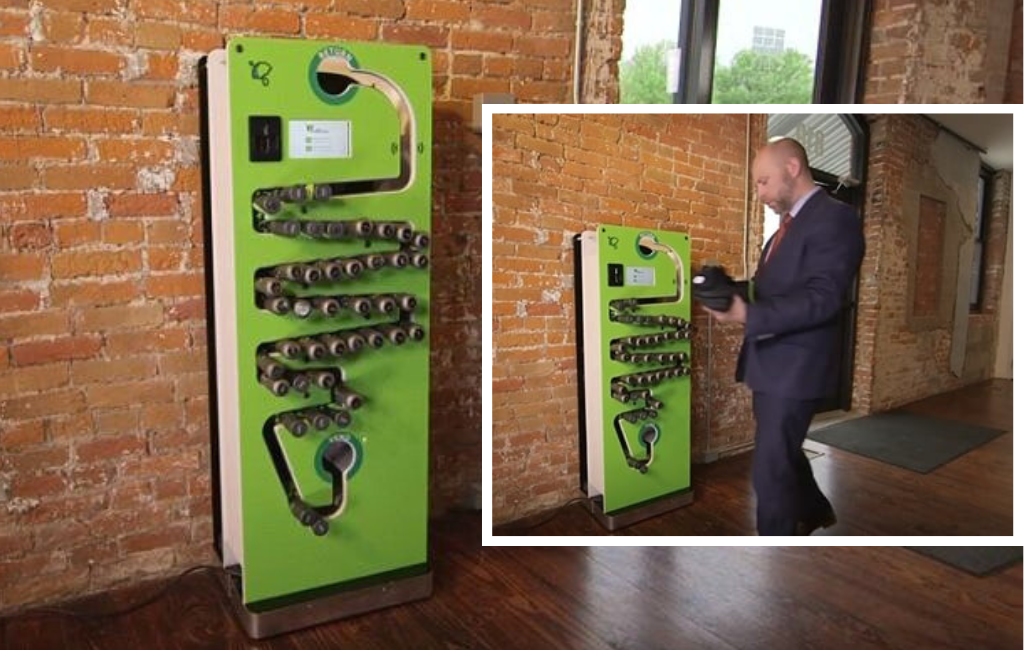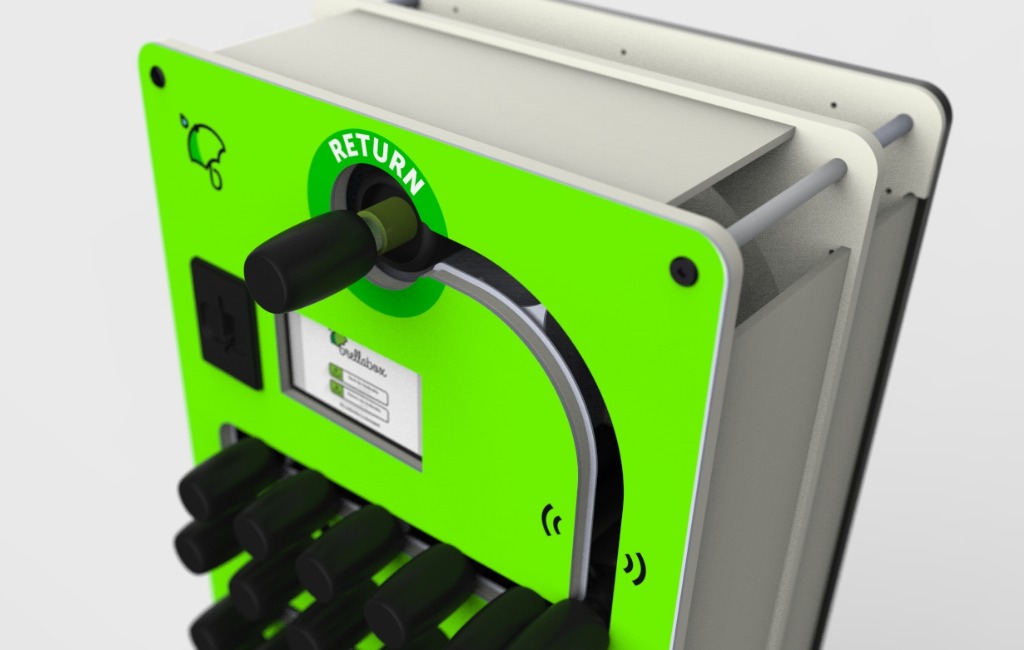Brellabox – Umbrella Rental

NO DEAL
EPISODE SUMMARY
🕓 Air Date: April 29, 2016
Asking For:
$400,000 for 20%
Investor:
No Deal
Deal:
No Deal
PRODUCT SUMMARY
Brellabox offers a solution to the inconvenience of carrying umbrellas by providing strategically located machines where customers can rent high-quality umbrellas for a small fee.
WATCH HERE
IN A RUSH?
Click these to jump to the section you want to read.
Background Story
Brellabox founders, John O’Connor and Anusha Kambhampaty, introduced their business to the Sharks with a vision to eliminate the hassle of dealing with cheap, disposable umbrellas. The idea stemmed from the frustration of getting caught in rainstorms and the environmental impact of discarded umbrellas. Based on their experience in walking cities like New York, they conceived the idea of setting up umbrella rental stations, reducing waste, and providing a practical solution for unexpected rain.

The Product
Brellabox offers a convenient solution to the inconvenience and waste associated with purchasing low-quality umbrellas during rainstorms. Users can rent high-quality umbrellas from strategically located Brellabox machines using a credit or debit card for a small fee of $1.50 for 12 hours. Upon rental, users provide their contact information for reminders and return the umbrella to the nearest machine using the Brellabox app.
The company has received interest from universities and has conducted a pilot program, receiving positive feedback and usage during rainy days. Additionally, Brellabox secures third-party sponsors for branding opportunities on the machines.

How It Went
The company’s position before Shark Tank
Brellabox is pre-revenue, with a pilot program conducted in New York City receiving positive feedback during rainy days. The founders have invested their own funds into the business, and they secure umbrellas from manufacturers for free due to branding opportunities. However, the company faces criticism from the Sharks regarding its scalability, revenue model, and market demand. Despite interest from universities and positive feedback during the pilot program, the Sharks express concerns about the business’s viability and profitability.

The Negotiations:
The Sharks expressed skepticism about the viability of the business, with Mr. Wonderful (Kevin O’Leary) calling it one of the worst ideas on Shark Tank. Mark Cuban and Lori Greiner both bowed out early, citing concerns about the scalability and financial model. Despite Chris Sacca showing some interest, he ultimately decided to pass. Daymond John was the last hope for a deal, but he also opted out, emphasizing the challenges of the business model and the lack of an everyday need. The founders left the tank without securing an investment.








